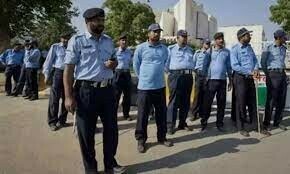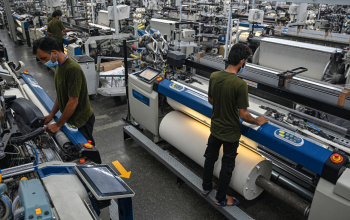The full court resumed hearing pleas challenging the Supreme Court (Practice & Procedure) Act, 2023 on Monday, with the aim to conclude the case today after hearing all the parties.
Headed by Chief Justice of Pakistan Qazi Faez Isa, the full bench comprises Justice Sardar Tariq Masood, Justice Ijazul Ahsan, Justice Mansoor Ali Shah, Justice Munib Akhtar, Justice Yahya Afridi, Justice Aminuddin Khan, Justice Mazahar Ali Akbar Naqvi, Justice Jamal Mandokhel, Justice Muhammad Ali Mazhar, Justice Ayesha Malik, Justice Athar Minallah, Justice Syed Hasan Azhar Rizvi, Justice Shahid Waheed and Justice Musarrat Hilali.
Last week, during the second full court hearing of the pleas, the CJP had stressed the need to give due respect to parliament, warning that a failure to do so could result in the country being governed not by its Constitution but by the verdicts delivered by judges.
The chief justice remarked that the Practice and Procedure Act limits the powers of the chief justice on theh one hand but, on the other, divides these powers among two other judges.
Chief Justice Isa pointed out that the law would also apply to future chief justices and judges.
“At first, I considered not presiding over this case, but then I realised it would have implications for everyone,” the CJP remarked.
At the last hearing, CJP Isa remarked that, “The [judges] forget the oath when martial law is imposed, but remember it as soon as the parliament does something.” He proceeded to point out that there hung many pictures of judges in this courtroom who forgot their oaths when martial law was imposed.
The chief justice recalled that the apex court upheld martial laws on several occasions, adding that the judges violated their oath and allowed the Constitution to be interfered with.
Read Public interest cases take a back seat
“Pakistan cannot be olayed with,” he continued. “Parliament must be respected.”
In their arguments, the lawyers, who had challenged the act, also admitted that Article 184(3) – which pertains to the suo motu powers of the apex court – had been misused and overused in the past.
The CJP further questioned that if one day the court deemed a decision to be correct, and deemed it to be wrong the next day, “What will you say then? Is the Supreme Court the king of the jungle”?
In this manner, he continued, the country will not be governed by a constitution, rather by laws shaped by the decisions of the judges.
Emphasising on understanding the reality, instead of drumming up assumptions, the chief justice observed that admitting a mistake was necessary for rectification.
He pointed out that the SC was still the central authority in this act as it did not speak of transferring the powers to anyone outside this building.
Justice Ijazul Hassan questioned whether parliament could not amend a law by a majority vote. He also inquired about the necessity of the legislation at that particular time.
At this, Justice Athar Minallah chimed in, suggesting that this question could be connected to the past. He added that the excessive use of Article 184(3) had contributed to the need for this act.
Furthermore, Justice Ayesha Malik questioned who would hear the appeal against the decision of a full court decision, particularly what would happen to the appeal against the decision of the present case.
The chief justice responded that if 17 judges make mistakes, there should be no right of appeal.
Read the full story at the express tribune website.


